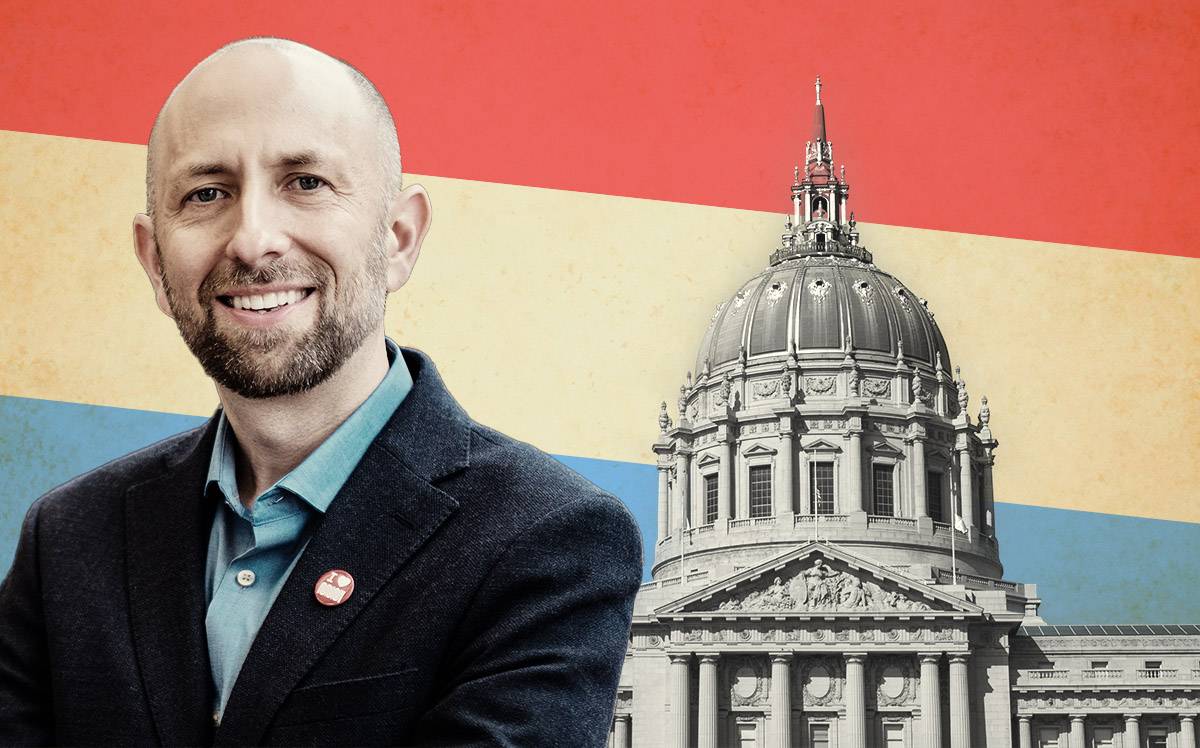With the San Francisco mayoral race, half the supervisor seats and several key measures on the November ballot, housing advocates and moderate political groups see a chance to make a once-in-a-decade impact on the city’s housing and development policies.
“There are a lot of points here that, if turned correctly, could really shift San Francisco dramatically in the right direction,” said Jay Cheng, executive director of moderate political group Neighbors for a Better San Francisco. “A lot of the challenges that San Francisco is facing, these elections can put the right people in place to solve them.”
Cheng is the former deputy director of government relations for the San Francisco Association of Realtors and helped start the group in 2020.
Given its real estate ties, the group has attracted sizable industry support.
Commercial landlord Kilroy Realty is one of Neighbors’ biggest contributors and has given $1.2 million since it formed, with $875,000 of that amount coming in December 2023, according to public filings.
In the lead up to and aftermath of the March election, multifamily property manager Trinity Management Services donated $100,000, Park Hotels donated $50,000, as did John Atwater, CEO of Prime Group. The chairman of multifamily owner Legacy Partners, C. Preston Butcher, has donated $25,000 as well.
The organization co-sponsored a ballot measure that would change the city’s charter to cut the number of commissions in half. That should be a good start towards making it easier to do business in the city, Cheng said, especially for developers.
This measure should be “really interesting to the real estate industry because so much of that work is tied up in commissions — the Department of Building Inspection, Planning, Historic Preservation — and so much of that commission structure is bureaucratic and designed to block development, designed to block housing,” Cheng said.
Thomas Coates, chairman of multifamily owner Jackson Square Properties, and his wife Linda have donated $500,000 to support the commission-slashing campaign run by mayoral candidate Mark Farrell. Billionaire investor John Pritzker, whose family started the Hyatt hospitality brand, donated $200,000 to the Farrell-led ballot measure campaign as well.
Mayoral candidate and Board of Supervisors President Aaron Peskin has put a competing commision reform measure on the ballot that would first create a task force to recommend improvements to the commissions and then modify the city’s charter based on that, plus public input, rather than going straight to making cuts.
Flipping the board
SFYIMBY Action Organizing Director Jane Natoli said the commission ballot measure, co-sponsored by Together SF, a moderate group led by Cheng’s wife Kanishka Cheng, is “a good governance opportunity and we care about governance, but at the end of the day it’s pretty tangential to our core mission.”
Instead of ballot measures, SFYIMBY will focus on rallying support behind Mayor London Breed as well as pro-housing candidates in the supervisor races, where six of the 11 seats on the board will go to voters. In three of those races — Districts 3, 9 and 11 — there is no incumbent in the race.
District 3 Supervisor Aaron Peskin and District 11 Supervisor Ahsha Safai are both running for mayor and District 9 Supervisor Hillary Ronen is termed out. Peskin and Ronen are two of the most progressive members on the board, so replacing them with pro-housing advocates would make a big push towards realizing YIMBY goals on rezoning, as well as lowering developer impediments like the transfer tax, Natoli said.
“In the same way we need to speed up the process for housing construction, we also need to speed up how we’re changing our process,” Natoli said. “It can take so long and there are so many levers, so having a board that’s more aligned — that’s not coming at it from an antagonistic place, that’s not chipping away or actively fighting — that’s going to go a long way.”
Moderate candidates face more of an “uphill battle” when it comes to facing progressive incumbents, she said, though the 2022 victory of more moderate Joel Engardio over progressive incumbent Gordon Mar in District 4 could present a good sign. Still, she expects District 1’s race to be a nailbiter, with progressive incumbent Connie Chan facing several challengers, including YIMBY-backed Marjan Philhour.
District 5’s progressive incumbent Dean Preston is a “really skilled campaigner,” Natoli said, who has been able to turn negative campaign ads to his benefit in the past. In this cycle he has raised over $425,000 for his campaign, according to campaign finance disclosures, compared to nearly $300,000 raised to oppose him, by far the most of any opposition campaign in the city in this cycle.
“He uses these kinds of tactics to rile up his base and get them to do work for him and certainly he has no trouble raising funds,” she said.
Ready for change?
Sachin Agarwal, co-founder and director of moderate group GrowSF, said flipping the board to a pro-housing majority was “essential” to see “real progress on our housing needs.”
He also believes voters have indicated they want change. That started with the successful 2022 recalls of District Attorney Chesa Boudin and several school board members, and continued with the election of a more moderate Democratic County Central Committee in March. The changes at the DCCC should pay dividends in November, he said, calling the DCCC the “second or third most influential resource in the city.”
On July 25, the DCCC announced its endorsements: Mayor London Breed, Philhour for District 1, Danny Sauter in District 3, Bilal Mahmoud in District 5, incumbent Myrna Melgar in District 7, Trevor Chandler and Robert Hernandez in District 9 and Michael Lai in District 11. In all these races, the DCCC is endorsing the same candidates as SFYIMBY and matches the endorsements that the Housing Action Coalition has released thus far.
Corey Smith, executive director of the Housing Action Coalition, said he has seen projections that the DCCC endorsement could have an impact between 3 and 12 percent of the vote tally, though it varies greatly race by race.
“It’s not the most important thing — having a good candidate or measure is — but it’s helpful,” he said of the DCCC endorsements, adding that HAC will put the majority of its resources behind a $20-billion regional housing bond measure, as well as a statewide initiative to lower voter thresholds for housing bonds that is essential to the measure’s passage.
Cheng at Neighbors for a Better San Francisco said he is hoping for a “waterfall effect” from the moderate DCCC takeover, which could “align both the mayor and Board of Supervisors in a common direction around clean and safe streets, and smart housing growth, really addressing housing affordability challenges in San Francisco.”
It would be the first time in at least a decade that the city has seen that kind of alignment, Cheng explained.
His organization recommends Breed as a third option for mayor, behind challengers Mark Farrell, a former District 2 Supervisor who was briefly appointed Mayor after the death of Mayor Ed Lee in 2017, and Daniel Lurie, a philanthropist and an heir to the Levi’s apparel fortune.
An investment in SF
With the election about three months away, Cheng said his organization plans to step up its voter education efforts soon. Many events will involve the real estate industry, which he said “really stepped up” with financial support of the recall measures in 2022.
“They said, ‘Not only is this important to my business, but this is important to my identity. I’m a San Franciscan and I sell that San Francisco is an amazing place to be. I want San Francisco to be an amazing place, because that’s what I’m telling people every day,” Cheng said.
Though he is a little concerned that the presidential election will “take up all the oxygen in the room,” he said he’s surprised by the number of people who have realized that this November could mark a major shift in the city and are making investments accordingly.
“I’m not talking about just capital markets or businesses, but everyday people who are making decisions about where they want to live and raise their families and create a future,” Cheng said. “They’re looking at it like, ‘I feel really good about this November, and I want to be part of that,’ and that encourages them to invest in the city personally.”
Read more




